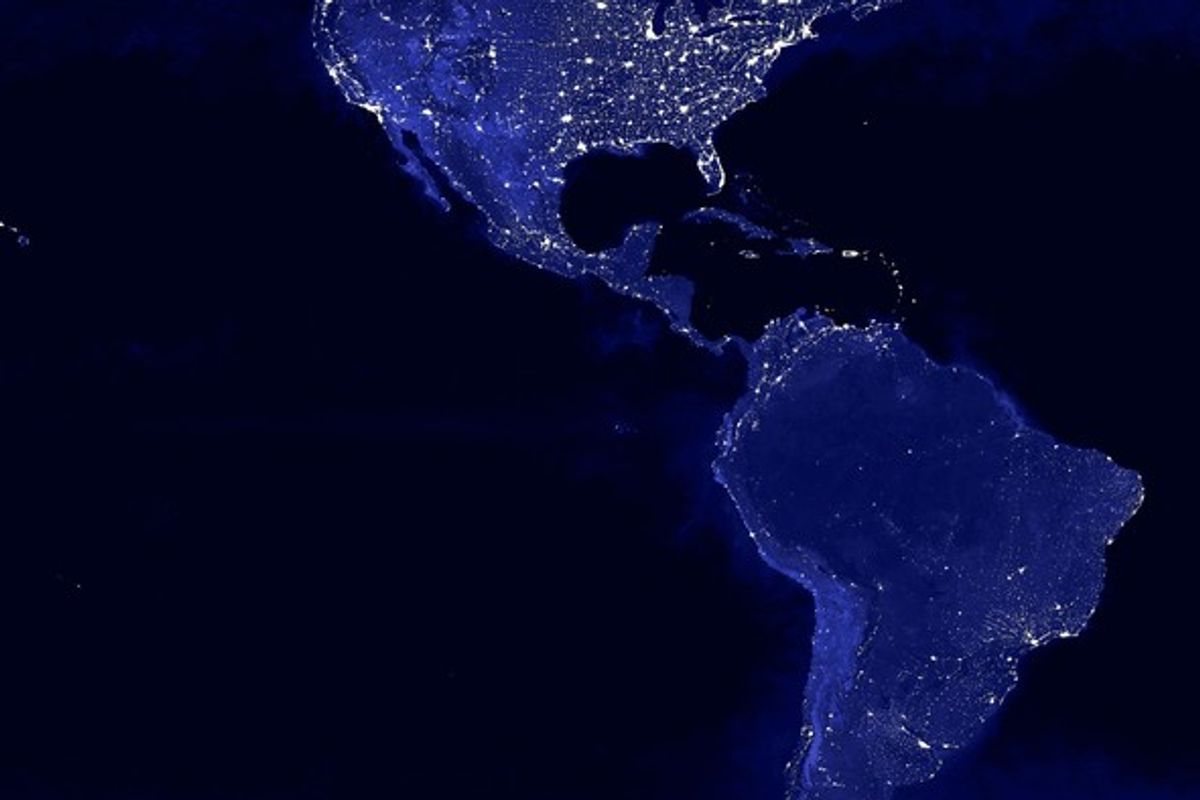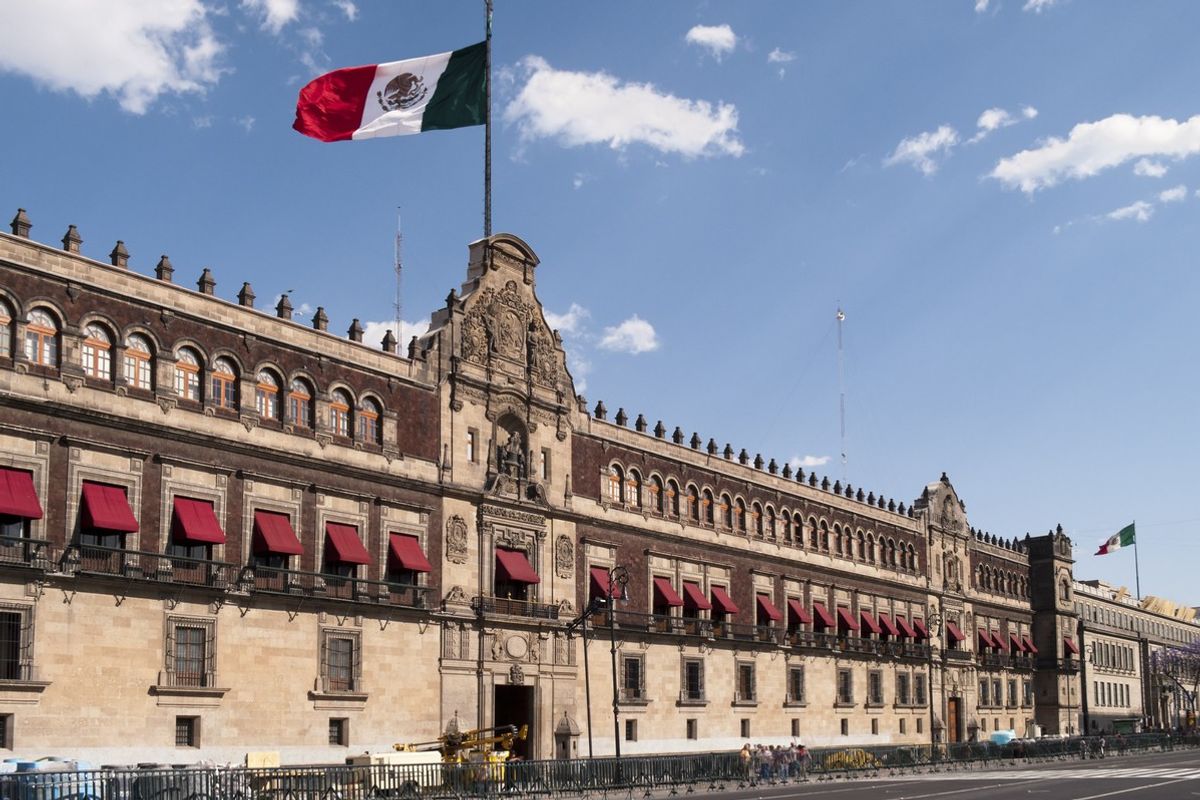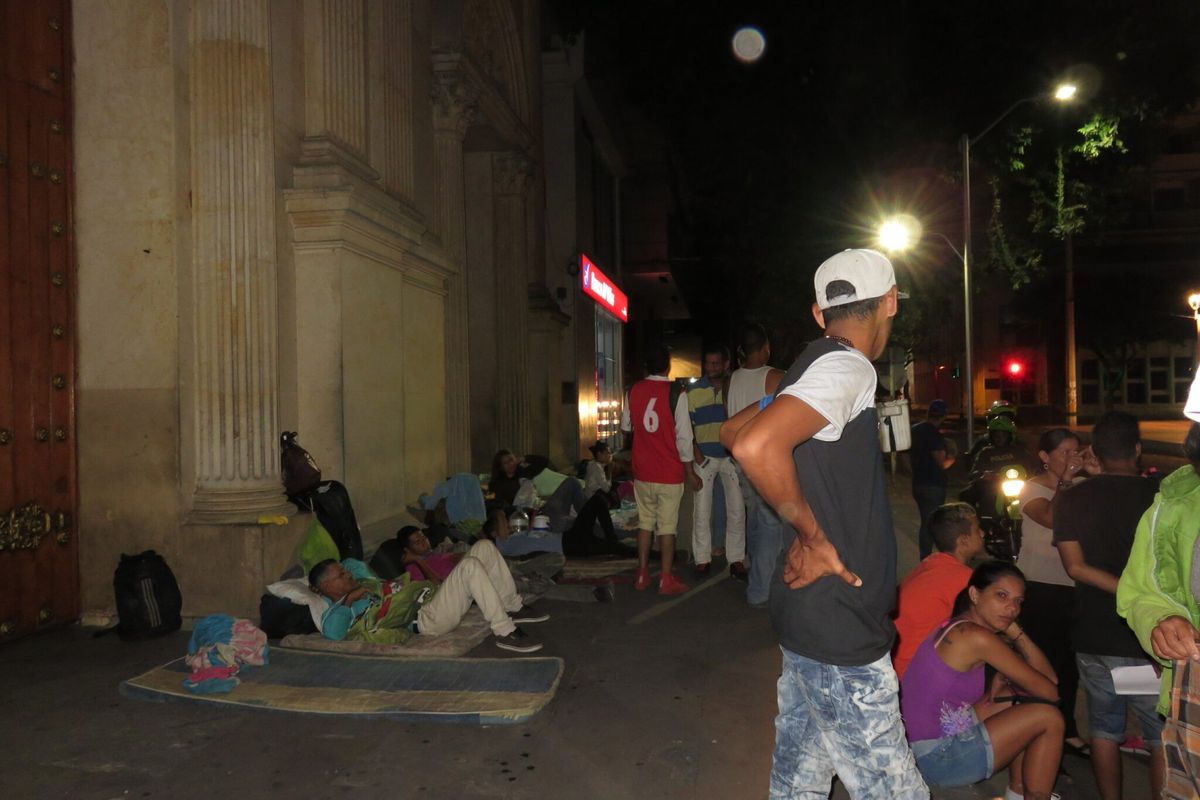The brutal battle against the Cali Cartel enters a new chapter in the war on drugs, with the Season 3 premiere of the Netflix series Narcos on September 1st. It follows the previous seasons that tracked the life and eventual demise of Colombian drug lord Pablo Escobar.
The Drug Enforcement Agency (DEA)’s Javier Pena was one of two agents who was instrumental in bringing down Escobar and the notorious Medellin Cartel. Pena and his partner Steve Murphy, both depicted in Narcos, were consultants on the show’s first two seasons.
After the death of Escobar, the real-life Pena went back to Colombia to crack the Cali Cartel. Here, he tells Leone Lakhani about the show, his experiences, what he learned from tracking Escobar, and where he sees the war on drugs today.
The Cipher Brief: We left Season 2 with the death of Colombian drug lord Pablo Escobar, one of the most notorious traffickers in history. You, along with your DEA partner Steve Murphy and the Colombian police, brought him and the Medellin Cartel down. Describe what that was like for you?
Javier Pena: It was emotional. It was a sigh of relief. I started chasing this war in 1988. This was a sense of justice because of all the innocent people Escobar killed, including many police officer friends of mine. We called Pablo Escobar the inventor of narco-terrorism. During his reign, he was responsible for the deaths of 10-15 thousand innocent people. Some of his sicarios [hitmen] – one in particular – said it was more like 50,000 people. So justice was done, and my heart goes out to all the innocent people who were at the wrong place at the wrong time.
TCB: Hollywood of course takes some creative license, of course, in the show. But was there anything in it, that was totally fictional that you want people to know about?
Pena: (Laughs). Well, there are a couple things. The chronology is accurate. There are some artistic licenses. The main thing was that I was never dirty. I was never complicit with Los Pepes.
TCB: For people who haven’t seen the show, can describe who Los Pepes was, and how Narcos portrayed it? Did it bother you, about their portrayal of what happened then?
Pena: Los Pepes was a right-wing vigilante group that was made up of traffickers that Pablo Escobar had killed. So Los Pepes got together and decided to fight Pablo Escobar dirty. Their number one goal was to kill his family members, just like Pablo Escobar went after their bosses. Two people in particular – Gerardo Moncado and Fernando Galeano – were killed by Pablo Escobar. So their head of security – a guy by the name of Don Berna – formed Los Pepes. He got together a group of traffickers and said “you know we’re going to fight Pablo Escobar dirty, the way he’s been fighting us.” So they went after him with a vengeance. And the show sort of depicts me as helping them out, which is not true.
TCB: What did you think of the portrayal of Javier Pena in the show's first two seasons, where you were a consultant?
Pena: We didn’t have any say-so in who plays us, but you know what, the guy they chose is a great actor, and I mean we’ve become friends. Pedro Pascal did a great job. Like you say, there are artistic licenses. I don’t smoke, for instance. I wasn’t a womanizer. I was single but, I never dated informants.
TCB: So Season 3 is about the Cali Cartel – and the character of Javier Pena, who’s based on you – is part of the hunt for Cali. You were not a consultant on this season, like the other two. BUT you did spend a lot of time in Colombia. How soon did you go back to Colombia after Escobar's death and what was your role?
Pena: Escobar got killed in December 1993, and I stayed there until about October 1994. So I got involved in some investigations against the Cali Cartel. I went back in 1999, and I got promoted to the assistant country attaché, which is basically the Number 2 guy for the DEA in Colombia.
We headed up a team of agents who went after the Cali Cartel that was being run by the Rodriguez Orejuela brothers. What we noticed was that Cali Cartel had learned from the Medellin Cartel. For example, I called Medellin Cartel the wild, wild west. Cali Cartel was more business-like. They were more organized. They were more business-savvy. They had more sophisticated accountants. Pablo Escobar’s forte was Miami. Cali Cartel’s forte was New York. Keep in mind that they had a vicious war going for turf. They were trying to kill each other. So as soon as Pablo was killed, Cali Cartel grew very, very strong and powerful.
TCB: And what lessons had you learned from tracking Pablo, when you went after the Cali Cartel?
Pena: The lessons were that you had to go after an organization from the bottom to the top, and the top to the bottom. In other words, it wasn’t only going after Pablo Escobar. You needed to go after the sicarios [hitmen], the associates, the people working in the United States that were running distribution networks for Pablo Escobar. And I think it was evident. I tell people, “look at Pablo Escobar when we first started in the mid-80s, he had hundreds and hundreds of sicarios.” At the end, on the day he got killed, he had one sicario left.
TCB: So when you say Cali was more business-like, in what sense? Was it harder to track because of that?
Pena: Yes, Cali Cartel was harder because of the network they had. They used more professional-type accountants. They educated in the United States. Some of the people were educated in the United States in big universities. Cali was also more sophisticated in their smuggling methods. For example, they would hide a lot of coke inside big cargo-type containers inside cement, in heavy machinery, which was very hard to detect. It was harder for us to find their cocaine.
TCB: Narcos shows the technological challenges you and the team faced when you were tracking down Escobar in Medellin. These traffickers had so much money. They had satellite phones. They had a network of children, taxi drivers, airport workers. You had to shift and develop new ways of tracking them. So how were your methods used and developed in future DEA operations?
Pena: You’re absolutely right. Pablo had a network of people in Medellin that would tell him something’s wrong, something’s suspicious. That network of spies was very, very large. At the beginning, it was very hard to get informants. People did not want to say anything about Pablo Escobar because if he found out, he would have them killed.
Whereas later, he was more disorganized. Then you would see people come forward and offer information because they knew that Pablo could be taken down. Plus, we were more concentrated. We had better equipment. We had more people. We had more intelligence-type services working for us.
TCB: We see some that in the show – the battles between some of the agencies and the DEA. And you see the U.S. ambassador bringing all of you together. Beyond that, did it change where more of the agencies were working together?
Pena: Yes. We started sharing more information, and a new concept was created. It was the targeted king pin operations strategy, where you were going after anybody that was associated with Pablo Escobar, anywhere in the world.
TCB: But beyond Escobar, if we’re looking at Cali…
Pena: There were some turf wars at the beginning and towards the end, you know, we learned everybody’s got to come to the plate. Everybody’s got to be willing to open up their playbook, share information. One thing we’ve learned is that there’s no agency out that there that can do it by itself.
You’ve also got to rely on the different countries, working together. We saw that happening during Escobar and the Cali days. We started doing simultaneous takedowns. On the same day, we would arrest people in the United States and Colombia, to try to dismantle that organization.
TCB: Your career was about tracking deadly traffickers. How did you stay safe? What was life like? Do you feel safe now?
Pena: Yes, yes. You know, I always tell people God took care of us. Also, the police in Colombia did a great job in protecting us. They were always there with us.
TCB: Have any of the families of the people you brought down tried to contact you? Pablo's son, for instance?
Pena: (laughs) I’d rather not talk about that, but yes there’s been some contact. On the positive side, there’s been contact by police officers’ families that have called me. I don’t want to mention names, but the daughter of one of the police officers, who was killed, contacted me about 5 years ago. She wanted to know what her dad was like. She was a baby and never got to meet him. So, I met with her and talked to her and told her stories about her dad who was a great, great person.
TCB: Do you still have to be careful about your safety, Javier?
Pena: We’re always careful. Right now, there’s no one out there – I mean, I don’t think (laughs) – that’s coming after us. It’s been a long time. But you’re always using common sense-type of factors.
TCB: You went to Colombia just four years into your career, and you spent a lot of time in Colombia., but you’ve worked on many different types of operations. Is there anything that really surprised you?
Pena: Well, obviously, Pablo Escobar was the biggest case I worked on. What sticks out with me, and always will be, is why, why go after the innocent people. Why kill, just to make a point. I remember when I started working dope, my first undercover-type days were in Austin, Texas. I was Hispanic so I was doing a lot of heroin buys, going after the heroin traffickers. Back then, when you would arrest someone, there was more respect. No guns were involved. Then we started seeing the shift where now, everybody’s got a gun. It’s more dangerous.
TCB: You only retired from the DEA a few years ago, so looking back at your career, how do you think the drug landscape changed and progressed?
Pena: What we’ve learned is that if you look at history what happened with the Medellin Cartel after we took them down, Cali Cartel got stronger, right? Then we take them down, and North Valle Cartel takes over. We’re taking down cartels, and another cartel is born.
What we tell people is that as long as there’s a demand for some nasty type of drugs, there’s going to be people that will take a chance in selling their dope to make a quick dollar. Look at the heroin problem we’re facing right now in the United States. The fentanyl. At one point it was methamphetamine. Now we’re hearing more about the opioids, the prescription drugs. What’s the solution? I wish I had the answer. We need to get better with society – the schools, the family, churches, religion. I mean there are a lot of great people. It’s just that small percentage out there.
You can listen to the full discussion with Javier Pena here.











